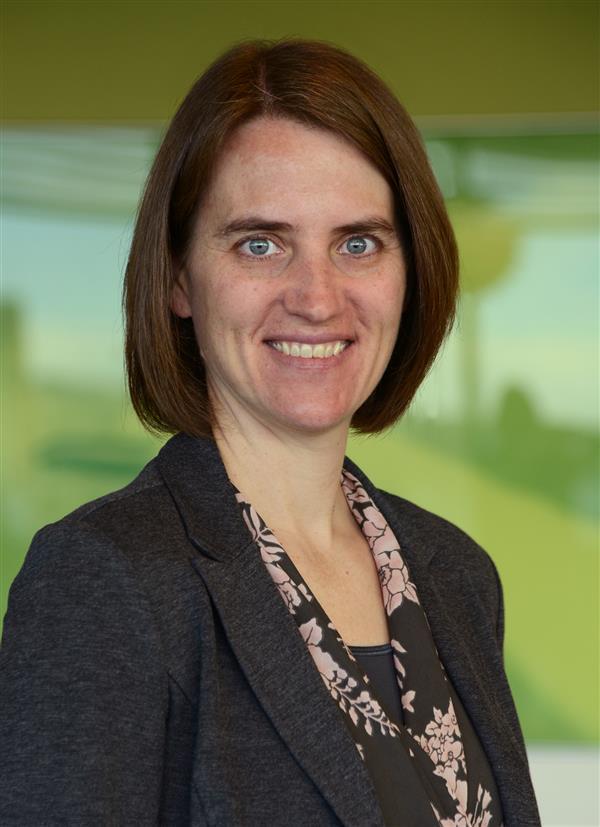Jean Mulcahy-Levy, MD, has spent a decade researching how, why and when cells eat themselves. Healthy cells use this process, called autophagy, to recycle unneeded bits of themselves, often to survive periods of stress. Unfortunately, cancer cells use autophagy as well and for similar reasons – autophagy can help cancer cells survive the stress of drugs designed to kill them.
Mulcahy-Levy’s previous work under University of Colorado Cancer Center mentors Andrew Thorburn, PhD, and Nicholas Foreman, MD, has shown that adding the anti-autophagy drug, chloroquine, to patients with brain cancers that harbor BRAF-V600e mutations can lead to better outcomes.
“What we’re trying to do with this R01 award is to expand the reach of anti-autophagy drugs in brain tumors, specifically by trying to identify other genetic markers of patients that might respond to blocking that pathway,” says Mulcahy-Levy, CU Cancer Center investigator and assistant professor in the CU School of Medicine Department of Pediatrics.
R01 grant funding from the National Institutes of Health and National Cancer Institute is awarded to established scientists leading their own research teams in the exploration of ideas that have already shown significant promise.
“This is my first R01, the progression of my research into my own, grown-up grant funding. It’s exciting; it validates what I’ve been doing all these years. Also, there’s a level of responsibility to ensure that the money I’m given is used for research that will benefit people,” Mulcahy-Levy says.
Genes rarely work alone, and instead combine into switchboard-like signaling systems involving many interrelated genes communicating in a cascade. Work by Mulcahy-Levy and her mentors (among others) has shown that alterations in the MAPK signaling pathway predict cancers that depend on autophagy. BRAF-V600e mutations are one way that cancers alter the MAPK signaling pathway, but there are many more.
“We’re looking at other BRAF gene alterations, and also low-grade glioma genes that are found mutated often, like NF1 and FGFR. Basically, one of our beliefs is that any gene mutation or alteration that alters the MAPK pathway will identify brain tumors that will respond to this therapy,” she says.
This belief led Mulcahy-Levy to partner with Lindsey Hoffman, DO, pediatric oncologist at Children’s Hospital Colorado to design a clinical trial testing the anti-autophagy drug chloroquine in combination with MAPK inhibition for young brain cancer patients. In fact, the trial is the first investigator-initiated trial through the CU program offered for pediatric patients. The trial will open for enrollment in the fall.
“The trial is specifically for patients who have developed resistance to MAPK inhibitors,” Mulcahy-Levy says. “Our goal is to study why they develop resistance and why autophagy inhibition can help them respond again to MAPK inhibition. If this trial is successful, because all the drugs are already FDA-approved, the strategy could be rapidly translated to any physician even outside academic medicine.”
Interestingly, while autophagy inhibition has been shown to extend the lives of some brain cancer patients, it’s been largely unclear why this strategy works. An additional goal of Mulcahy-Levy ‘s research funding is to explore this mechanism.
“If we can show that we can extend and improve life for these patients, that would be wonderful,” she says.




